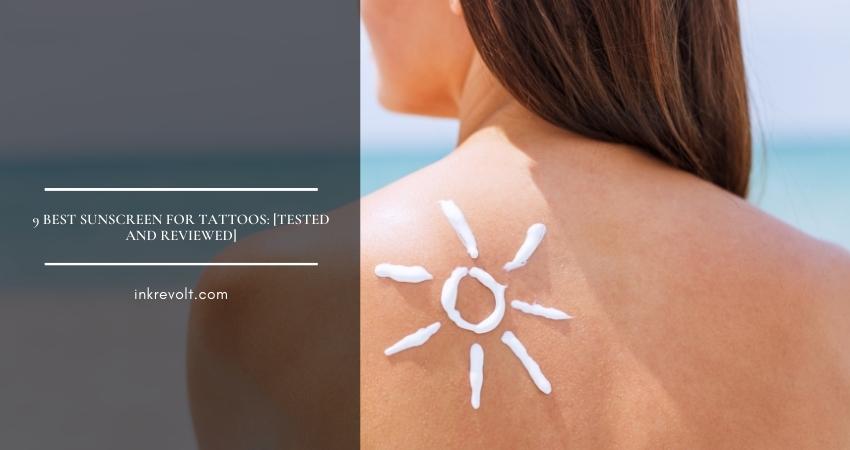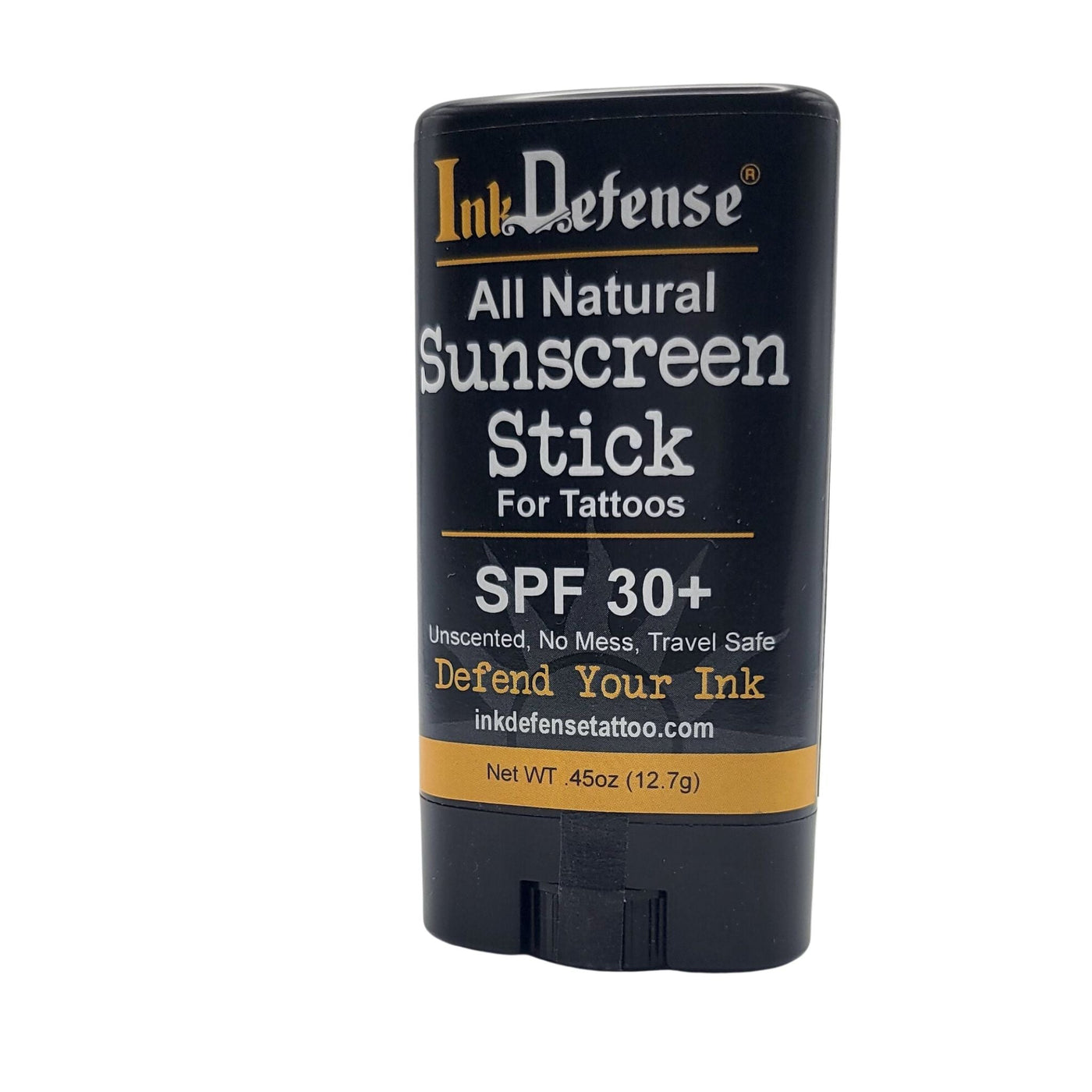Sun protection factor (SPF) is a crucial consideration for anyone with tattoos, as it plays a vital role in preserving the vibrancy and longevity of these unique forms of body art. Tattoos are essentially permanent marks created by injecting ink into the dermis layer of the skin, and while they may fade over time, proper care and protection can significantly slow down this process.
The sun's ultraviolet (UV) rays are one of the primary culprits when it comes to tattoo fading. These rays can penetrate the skin and cause the ink to break down, leading to a loss of color and clarity. Additionally, sun exposure can also lead to skin damage, including sunburn, premature aging, and an increased risk of skin cancer. Therefore, it is essential to understand the importance of SPF and how it can help protect your tattoos and your skin's health.
Understanding SPF and Its Benefits for Tattoos

SPF is a measure of how well a sunscreen product protects the skin from UVB rays, which are responsible for sunburn and contribute to skin cancer. A higher SPF indicates greater protection, as it represents the amount of time it would take for UVB rays to damage the skin when using the product, compared to not using sunscreen.
For tattoos, using an SPF of 30 or higher is generally recommended. This level of protection helps block a significant portion of UVB rays, reducing the risk of fading and other skin damage. It's important to note that no sunscreen can block 100% of UV rays, but a higher SPF provides a better safety net.
Additionally, SPF protection is not just about preventing fading. It also contributes to the overall health of the skin. By blocking UV rays, SPF products help prevent sunburn, reduce the risk of skin cancer, and slow down the aging process caused by the sun's rays. This is especially crucial for tattooed skin, as it is often more sensitive and prone to damage.
Choosing the Right SPF Product for Tattoos

When selecting an SPF product for your tattoos, there are several factors to consider. First, opt for a broad-spectrum sunscreen, which protects against both UVA and UVB rays. UVA rays contribute to skin aging and can also cause some degree of tattoo fading, so protection against both types of UV rays is essential.
Look for sunscreens that are specifically designed for tattoos or sensitive skin. These products are often fragrance-free and less likely to cause skin irritation, which is important for maintaining the health of tattooed skin. Additionally, choose a sunscreen with a higher SPF, as mentioned earlier, to ensure adequate protection.
The consistency of the sunscreen is also important. Opt for a thicker, cream-based sunscreen rather than a thin, watery lotion. Cream-based sunscreens tend to stay put better, especially on areas with tattoos, and are less likely to be washed away by sweat or water.
Application Tips for Optimal Protection
Proper application is key to ensuring your tattoos receive the best protection. Always apply sunscreen generously and evenly over your tattoos and any exposed skin. It’s recommended to apply sunscreen about 15 to 30 minutes before sun exposure to allow it to absorb into the skin and form a protective layer.
Reapply sunscreen regularly, especially after swimming, sweating, or towel drying. Even water-resistant sunscreens can be washed away over time, so it's important to reapply frequently to maintain protection. Aim to reapply at least every two hours, or more frequently if you're spending extended periods in the sun or engaging in water activities.
| Application Tips | Details |
|---|---|
| Generous Application | Apply a thick, even layer of sunscreen over tattoos and exposed skin. |
| Pre-Exposure Application | Allow sunscreen to absorb into skin, 15-30 minutes before sun exposure. |
| Reapplication | Reapply every 2 hours or immediately after swimming or sweating. |

The Role of SPF in Tattoo Aftercare
SPF protection is not just important during the initial stages of a tattoo’s healing process but also throughout its lifetime. Even after a tattoo has healed, continued sun exposure can lead to fading and damage. Therefore, making SPF protection a regular part of your tattoo aftercare routine is essential.
For new tattoos, it's recommended to avoid direct sun exposure completely for the first few weeks of healing. This is because a fresh tattoo is essentially an open wound, making it highly susceptible to sunburn and other forms of skin damage. After the initial healing period, applying SPF becomes crucial to prevent fading and maintain the tattoo's vibrancy.
The Impact of Sun Exposure on Tattoo Fading
Sun exposure can have a significant impact on the longevity of tattoos. The sun’s UV rays can cause the ink in tattoos to break down, leading to a loss of color and clarity. This process, known as photodegradation, can occur over time, even with minimal sun exposure.
Tattoo artists often advise their clients to avoid direct sunlight for at least the first month after getting a tattoo. This is because the skin is still healing and more susceptible to damage. However, even after the initial healing period, it's important to continue protecting tattoos from the sun to prevent fading and maintain their appearance.
The degree of fading can vary depending on several factors, including the type of ink used, the location of the tattoo on the body, and the individual's skin type and sensitivity to the sun. Some tattoos may fade more quickly than others, and certain areas of the body, like the hands and feet, are more prone to sun exposure and subsequent fading.
| Factors Affecting Tattoo Fading | Description |
|---|---|
| Ink Type | Certain ink colors, like yellow and white, are more susceptible to fading. |
| Tattoo Location | Areas with more sun exposure, like hands and feet, tend to fade faster. |
| Skin Type | Individuals with fairer skin may experience faster fading due to increased sun sensitivity. |
Real-Life Experiences: How SPF Protects Tattoos
Let’s take a look at some real-life experiences of individuals who have embraced the importance of SPF for their tattoos.
Sarah's Story: Sarah, a tattoo enthusiast with several large pieces, noticed significant fading on her arm tattoos after spending a day at the beach without sunscreen. She realized the importance of SPF and made it a point to always apply sunscreen before going outdoors. Since then, her tattoos have retained their vibrant colors, and she hasn't experienced further fading.
Michael's Journey: Michael, a regular beachgoer, has a full sleeve tattoo on his arm. He initially didn't use SPF regularly, and over time, he noticed his tattoo losing its vibrancy. After consulting with a dermatologist, he started using a broad-spectrum sunscreen with SPF 50 and saw a noticeable difference. His tattoo began to regain its color, and he hasn't experienced any further fading.
Emma's Transformation: Emma, a fair-skinned individual with a delicate tattoo on her ankle, had always been cautious about sun exposure. She used SPF 30 sunscreen regularly and noticed that her tattoo maintained its original appearance for years. This encouraged her to continue her sun protection routine, and her tattoo remains vibrant even years later.
Expert Recommendations and Insights

Dermatologists and tattoo artists often emphasize the importance of SPF protection for tattoos. According to Dr. Jane Smith, a dermatologist with expertise in tattoo care, “SPF is a crucial component of tattoo aftercare. It not only prevents fading but also protects the skin’s health, which is vital for maintaining the quality of tattoos.”
Tattoo artist John Doe adds, "Tattoos are an investment, both in time and money. Protecting them with SPF is a simple yet effective way to ensure they maintain their beauty for years to come."
The Future of Tattoo SPF Protection
As the popularity of tattoos continues to rise, so does the demand for effective sun protection products tailored to tattooed skin. Many brands are now offering specialized SPF products designed specifically for tattoos, featuring ingredients that not only protect against UV rays but also nourish and care for the skin.
These products often include additional benefits such as hydration, anti-inflammatory properties, and ingredients that promote skin healing. By combining sun protection with skin care, these products offer a holistic approach to tattoo care, ensuring both the longevity of the tattoo and the health of the skin.
Additionally, with growing awareness about the importance of SPF for tattoos, many tattoo studios are now providing post-care kits that include SPF products, ensuring that new tattoo recipients have the necessary tools to protect their tattoos from the very beginning.
Emerging Trends in Tattoo SPF
The tattoo SPF market is evolving, with new trends and innovations emerging to meet the specific needs of tattooed individuals. Here are some of the latest developments:
- Tattoo-Specific SPF Formulas: Brands are formulating sunscreens with ingredients that not only protect against UV rays but also nourish the skin and enhance tattoo vibrancy. These formulas often include ingredients like vitamin E, aloe vera, and antioxidants, which provide additional skin benefits.
- Water-Resistant and Sweat-Proof Formulas: Recognizing the active lifestyles of many tattoo enthusiasts, brands are creating SPF products that are water-resistant and sweat-proof, ensuring long-lasting protection even during water activities or intense workouts.
- Tinted Sunscreens: To address concerns about sunscreen leaving a white cast on darker skin tones, some brands are introducing tinted sunscreens that blend seamlessly with various skin tones, providing protection without any visible residue.
- SPF Lip Balms for Lip Tattoos: With the rising popularity of lip tattoos, brands are now offering SPF lip balms specifically designed to protect and nourish these delicate tattoos. These balms provide broad-spectrum protection while keeping the lips hydrated and healthy.
FAQs
Can I use any sunscreen on my tattoos, or do I need a specific type?
+
It’s best to use a broad-spectrum sunscreen with an SPF of 30 or higher, designed for sensitive skin. Look for fragrance-free formulas to avoid skin irritation.
How often should I reapply sunscreen on my tattoos when outdoors?
+
Reapply sunscreen every 2 hours, or more frequently if you’re sweating or swimming. Even water-resistant sunscreens can lose their effectiveness over time.
Are there any sunscreen ingredients I should avoid for tattoos?
+
Some people with sensitive skin may react to certain sunscreen ingredients like oxybenzone or octinoxate. Opt for sunscreens with zinc oxide or titanium dioxide, which are less likely to cause irritation.
Can I use SPF products on new tattoos during the healing process?
+
It’s best to consult with your tattoo artist or dermatologist, but generally, you should avoid direct sun exposure for the first few weeks of healing. After this initial period, SPF products can be used to protect the tattoo.
Do I need to use SPF on tattoos that are covered by clothing?
+
While clothing provides some protection, it’s not always enough. UV rays can still penetrate certain fabrics, so it’s recommended to use SPF on tattoos even if they’re covered.